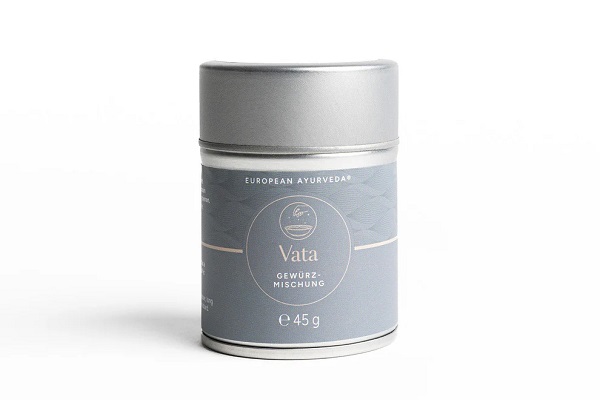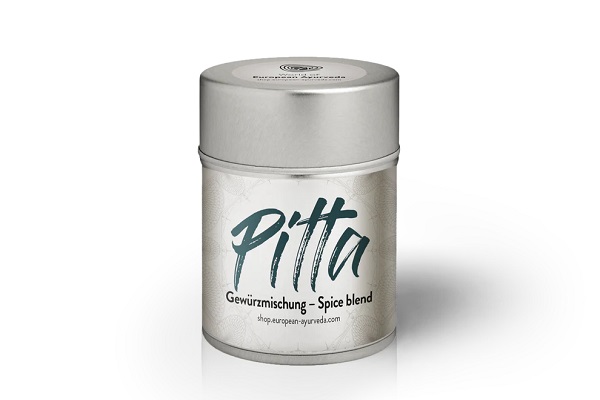Determining the dosha type is a central area of Ayurvedic healing and life science. The interaction between the physical and psychological levels of each person is unique and incomparable. In Ayurveda, "being healthy" means being in inner balance with the doshas. Find out your Ayurveda type now:
According to Ayurveda, every person has an individual constitution that shapes their physique, characteristics and susceptibility to illness. You can use the Ayurveda dosha test to determine your most pronounced dosha or Ayurveda type. Answer as spontaneously and honestly as possible.
Vata, Pitta or Kapha type: Which Dosha type am I?
Usually one or more doshas predominate - these make up your dosha type. With the Ayurveda type test, you can find out which Dosha dominates in you. Once you have determined your Ayurveda type, the next step is to learn how to balance the imbalance and thus live in harmony.
The Vata type
The Vata type stands for the elements air and ether and symbolizes the principle of movement. If you feel the urge to travel and discover, explore and change, you tend to be a Vata type.
You inspire others with your open nature. You find it easy to establish contacts and you have a very talkative, sensitive personality. You have great ideas in your head and are bursting with creativity.
You are enthusiastic when you are allowed to learn something, change your life and new things come your way. However, because you are always involved in several projects at the same time, you often find it difficult to concentrate on one thing at a time.
This has a negative impact on your stamina in the long term. People with a high proportion of vata are therefore often erratic, but also very flexible. Classic external characteristics are a fine physique and dry skin. Too much Vata manifests itself on an emotional level in despondency and general dissatisfaction.


In Ayurveda, the Vata type is encouraged to eat hot meals more often. However, if you have a Vata deficiency, you can balance this out with hot and bitter spices. As a Vata type, you should pay particular attention to the following points:
For mental and emotional balance:
- Stress management: reduce stress, inner tension and anxiety.
- Reduce Vata-increasing factors such as noise, computer work and electro smog.
- Avoid sensory overstimulation.
Ayurveda dietary recommendations:
- Enjoy your meal in peace and then plan a 15-30 minute break.
- Enjoy at least three hot meals a day with enough fat and protein.
- Do not heat up your food, but always prepare it fresh.
- Cook your food with ghee and use little salt.
- Drink hot water, ginger and herbal teas regularly.
- Avoid Vata-increasing foods such as legumes, millet and onions.
- Use warming spices like ginger, fennel and cinnamon.
- Benefit from tissue-building foods such as oats, root vegetables and nuts.
Ayurvedic rituals in everyday life:
- Relax with saffron milk and warm Abhyanga oil massages in the evening.
- Express your desire for communication and creativity.
- Nurture your interest in philosophy, holism and spirituality.
- Develop positive habits and rituals for yourself.
- Practice patience, self-discipline, composure and perseverance.



Discover your Vata spice
The European Ayurveda® Vata spice blend is a delicious and natural blend for harmonizing Vata.
The Pitta type
The Pitta type represents the elements of fire and water and tends to have temperamental outbursts. You are a charismatic leader with a penchant for perfectionism.
If you are a Pitta type, you are a dynamic and impressive personality. You are enthusiastic about sport, games and competition. You like to show off your energy and physical and mental prowess. As a Pitta type, you love to talk and are passionate in debates.


People with a lot of Pitta often have an athletic build, good blood circulation and tend to have greasy hair quickly. It is particularly important here that you do not fuel your fire any further.
Therefore, many spices are rather disadvantageous for you as a Pitta type. The digestive fire Agni is often disturbed by them and should rather be regulated with naturally sweet foods, green vegetables and raw vegetables.
Sometimes you are a little dominant and overestimate yourself and your energy. For this reason, you may run the risk of overriding yourself and disregarding your boundaries. As a Pitta type, you should pay particular attention to the following points:
For mental and emotional balance:
- Create a balance for yourself through sport activities.
- Use your potential, intelligence, leadership and perseverance.
- Transform your tendency to aggression, anger, resentment and irascibility into positive thoughts.
- Overcome your desire for control and perfection.
- Practice inner contentment, willingsness to help, tolerance and composure.
Ayurveda dietary recommendations:
- Enjoy regular meals and don't let cravings arise.
- Make sure you have a rich and wholesome lunch.
- Enjoy and chew your food slowly and consciously.
- Eat cooling foods such as fresh salads, melon and cucumber.
- Avoid acidic fruits and vegetables, dairy products, alcohol and coffee.
- Also avoid hot spices, salty foods and hot foods.
- Go for mostly green and sweet vegetables.
Ayurvedic rituals in everyday life:
- Meditation exercises, conscious walks and yoga sessions ensure inner balance.
- Take cooling baths with rose water, mint or lavender.
- Regulate your emotions through physical activity.


Discover your pitta spice
The European Ayurveda® Pitta spice blend is a tasty and natural blend that is specially tailored to the Pitta dosha.
The Kapha type
The Kapha type stands for the elements water and earth and symbolizes the principle of stability. You have a level-headed, deliberate nature that manifests itself in purposeful, focused actions.
As a Kapha type, your balanced personality makes you the rock of many people's lives. You love the water, the sun and the warmth. You always react thoughtfully and prudently, which is also reflected in your lifestyle:
You feel most comfortable when you work calmly and steadily and you are good with money. You are successful in your job. Your reliability is particularly appreciated.


Consistent values are important to you, but this can lead to inflexible routines or isolation. However, you can also be very resentful and are not easily persuaded to change your mind. To prevent lethargy and binge eating, you should consciously focus on exercise as a Kapha type.
You can also stimulate your inner fire with hot and bitter spices. Bitter vegetables, such as spinach or chicory, are also ideal for this type. As a Kapha type, you should pay particular attention to the following points:
For mental and emotional balance:
- Make sure to exercise regularly before or after eating.
- Give in to your desire for peace, safety and security.
- Learn to deal with stress properly without resorting to food out of frustration.
- Allow yourself the retreat that is necessary for your personal balance.
- Represent your own interests.
- Practice physical and mental activity, self-discipline, willpower and truthfulness.
Ayurveda dietary recommendations:
- Enjoy small meals and eat a maximum of three meals a day.
- Avoid snacks, especially early in the morning and late at night.
- Prepare appetizing meals.
- Avoid sweet, sour, heavy, oily, salty and cold foods.
- Use hot, bitter and stimulating spices in every meal.
- Refrain from eating cheese, milk and animal proteins.
- Enjoy light and tissue-building foods like barley, artichokes and leafy greens.
Ayurvedic rituals in everyday life:
- Practice walking meditation or yoga sessions for gentle movement and a calm mindset.
- Start the day with an Ayurvedic morning routine.



Discover your Kapha spice
The European Ayurveda® Spice Blend Kapha is a harmonizing blend that is tailored to the needs of the Kapha dosha.
Vata, Pitta & Kapha: What are the three doshas?
The doshas embody three bioenergies that influence your body, your environment and your entire being. Your spiritual, mental and physical dispositions are guided by the doshas.
These predispositions include your temperament, your likes and dislikes, your nutritional needs and your constitution. Your Ayurveda type is determined by the composition of the doshas you were born with. Just like every person, your dosha composition is unique.
However, the Ayurvedic types are very complex and depend on many different factors. Ayurveda is based on five elements: Ether, air, fire, water and earth. Each of the three doshas Vata, Pitta and Kapha consists of two of the five elements.
The constitutional types (also known as Ayurveda types or dosha types) are created from this composition. The ultimate goal is to achieve a harmonious balance of the doshas.
In addition to these three basic types, there are also various mixed types. According to Ayurvedic teachings, very few people can be clearly assigned to just one dosha type.


The energies that permeate your body and mind can also make you ill. "Dosha" literally means "that which corrupts" and thus symbolizes the ability to "corrupt" your body. However, these disease-causing forces only occur if there is an imbalance of energies within you.
For this very reason, a harmonious balance between Vata, Pitta and Kapha is essential for your health, energy and happiness. You feel a balance between body, mind and soul and feel healthy, fit and powerful. You are ready to shape your life according to your own ideas. Because you are worth it.
By the way:
Every person has all three doshas, although one type always dominates. The Ayurvedic way of life aims to find harmony between the three principles individually.
With the help of a Dosha type test, as well as a consultation and pulse diagnosis, you can discover your personal composition. And you can live according to your individual type - in terms of health, harmony and contentment.




